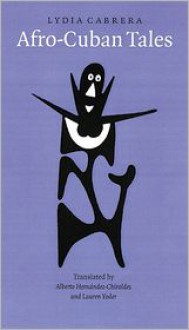As much a storyteller as an ethnographer, Lydia Cabrera was captivated by a strange and magical new world revealed to her by her Afro-Cuban friends in early twentieth-century Havana. In Afro-Cuban Tales this world comes to teeming life, introducing English-speaking readers to a realm of tenuous...
show more
As much a storyteller as an ethnographer, Lydia Cabrera was captivated by a strange and magical new world revealed to her by her Afro-Cuban friends in early twentieth-century Havana. In Afro-Cuban Tales this world comes to teeming life, introducing English-speaking readers to a realm of tenuous boundaries between the natural and the supernatural, deities and mortals, the spiritual and the seemingly inanimate.Here readers will find a vibrant, imaginative record of African culture transplanted to Cuba and transformed over time, a passionate and subversive alternative to the dominant Western culture of the Americas. In this charmed realm of myth and legend, imaginative flights, and hard realities, Cabrera shows us a world turned upside down. In this domain guinea hens can make dour Asturians and the king of Spain dance; little fat cooking pots might prepare their own meals; the pope can send encyclicals about pumpkins; and officials can be defeated by the shrewdness of turtles. The first English translation of one of the most important writers on African culture in the Americas, the collection provides a fascinating view of how African traditions, myths, stories, and religions traveled to the New World—of how, in their tales, Africans in the Americas created a New World all their own.
show less

